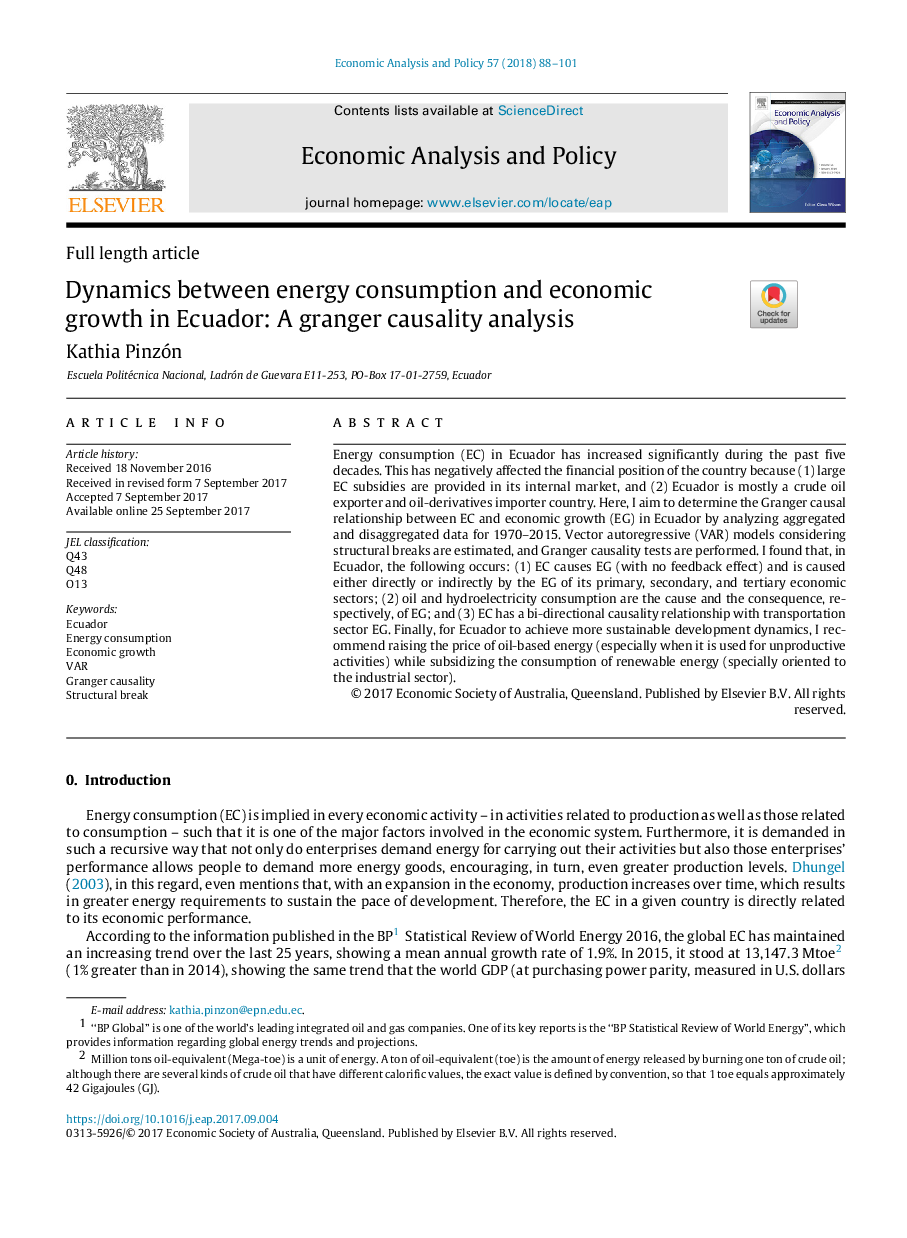| Article ID | Journal | Published Year | Pages | File Type |
|---|---|---|---|---|
| 7346652 | Economic Analysis and Policy | 2018 | 14 Pages |
Abstract
Energy consumption (EC) in Ecuador has increased significantly during the past five decades. This has negatively affected the financial position of the country because (1) large EC subsidies are provided in its internal market, and (2) Ecuador is mostly a crude oil exporter and oil-derivatives importer country. Here, I aim to determine the Granger causal relationship between EC and economic growth (EG) in Ecuador by analyzing aggregated and disaggregated data for 1970-2015. Vector autoregressive (VAR) models considering structural breaks are estimated, and Granger causality tests are performed. I found that, in Ecuador, the following occurs: (1) EC causes EG (with no feedback effect) and is caused either directly or indirectly by the EG of its primary, secondary, and tertiary economic sectors; (2) oil and hydroelectricity consumption are the cause and the consequence, respectively, of EG; and (3) EC has a bi-directional causality relationship with transportation sector EG. Finally, for Ecuador to achieve more sustainable development dynamics, I recommend raising the price of oil-based energy (especially when it is used for unproductive activities) while subsidizing the consumption of renewable energy (specially oriented to the industrial sector).
Related Topics
Social Sciences and Humanities
Economics, Econometrics and Finance
Economics and Econometrics
Authors
Kathia Pinzón,
